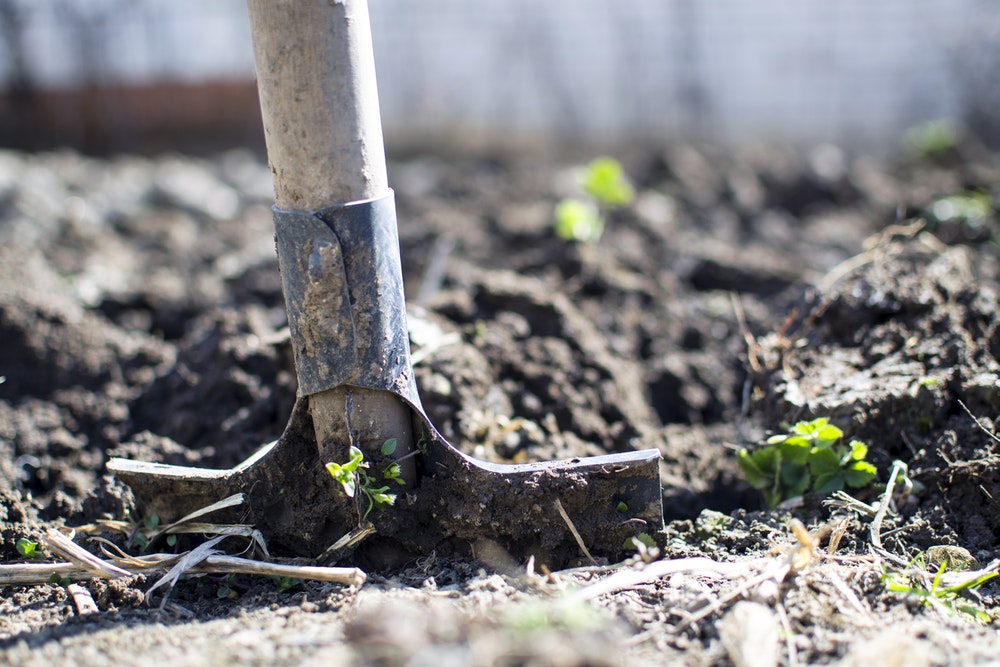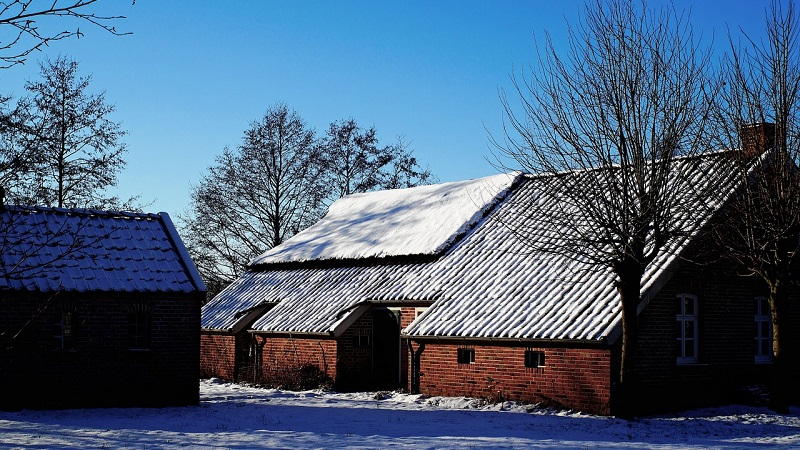Winter is a great time to have a little break, as a gardener, right? Well, sort of! There are no vegetables to tend, and the weeds should be drastically reduced – but there are other jobs.
Winter is the best time to improve your garden soil; the weather means that not much will be growing, and the nutrients have time to seep into the soil and improve it.
How Do I Prepare My Garden Soil For Next Year?

There is plenty that you can do, even in the depths of winter, to improve your soil for the following year and improve your chances for successful growing.
- Start by removing all the spent plants from this year, and clearing the area of weeds and other encroaching plants.
- Digging in organic mulch – whether this be manure, compost or other materials, is just about the best thing you can do for your soil.
- If you have heavy, clay based soil, you should consider adding some sand to it, to improve the drainage quality.
- Mulch and compost can do a lot to not only add nutrients to the soil, but also to improve the structure of it.
- Leaving some of the winter weeds, like chick weed, can help the soil by not only adding nutrients but also providing a bit of cover.
- You can cover your soil, which will help to keep it warm and prevent too much of it from being eroded by the rains.
Here is a good, comprehensive video that will help you to improve your soil for next year:
How Do I Enrich My Garden Soil For Winter?
Once all your plants have been harvested, you should give your soil a bit of TLC, to make sure it is at its best for the following year.
Start by testing your soil. This will tell you what, if anything, your soil is deficient in, and you can work out what to add to it.
Soil testing kits are easy to source, and you simply need to send a sample of your soil to a testing lab to find the results.
Work out what type of soil you have. Take a handful of your soil and squeeze it. If it feels like play doh then it is clay type, while if it falls apart then it is the sandy type.
- Sandy soils will benefit from some organic mulch to hold it together.
- Add well rotted manure to your clay soil, to help it become more pliable.
Add some good quality mulch to the soil, to give it some well needed nutrients.
Leave winter weeds, such as dandelions and chickweed, in the soil. This will help protect the soil from erosion during the wet winter months.
If you have empty beds, cover them up. This will keep the soil warm, as well as preventing it from eroding too much.
What Can I Add To My Garden Soil To Make It Better?

Making your soil better depends on what type of soil you are beginning with.
- Sandy soil will benefit from some organic matter, to improve the structure of it.
- Heavy, clay based soil will really like to have some sand added, to allow the soil to drain better.
- Poor soil should be composted and mulched to within an inch of its life, to ensure that there are enough nutrients for the growing plants.
- Well rotted manure is always a great choice as a soil improver; it improves the quality as well as the texture of the soil.
- Aged, rotted compost is another great option – you can spread around the contents of your compost bin as long as it is fully rotted.
This article is great for explaining all the things you can add to your soil to improve it.
Should I Cover Soil In Winter?
Although you don’t HAVE to cover your soil in the winter, there is a lot to recommend it, for the health of your garden.
- Covering the soil will not only lock in any nutrients from any mulch or manure you have used, but also prevent them from being washed away.
- It is also a good way of warming up the soil for the planting season, especially ideal for those small, tender plants who need a bit of mollycoddling.
- If you live in an excessively wet area, covering the soil can prevent too much of the soil being washed away.
- Winter rains can be very heavy, and eroding of soil can cause you big problems the following year.
- Covering the soil can be beneficial to sandy soils especially, as frosts can break down the soil which you might not want if you already have crumbly soil.
- If you cover your soil, you are also helping your future self out, by preventing weeds from showing their little faces in spring.
How Do I Keep My Soil Warm In The Winter?
There are a couple of ways to keep your soil warm in winter:
- This organic, natural approach will keep your soil toasty enough that you can steal a march on your fellow gardeners, and even start planting early!
- Weed covering fabric. Although this is not as attractive or as natural as fleece, most weed fabric is black, which will trap in heat.
- This material will keep your soil warm, as well as easily rotting into the soil so that it can be simply dug in and improve the texture.
- If you want to provide nutrients as well as warm the soil, lay manure on the surface but don’t dig it in. It will break down and get into the soil all by itself!
Final Words
Improving your garden soil over the winter will set you up well for your spring and summer planting, and your vegetables will thank you for it!
Now that you have some ideas on how to improve garden soil over the winter, you can get on it and make some of that perfect black gold!







